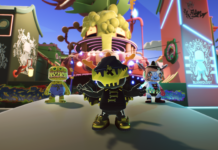Platforms: PC (previewed), PlayStation 4, Xbox One
Developer: Parabole
MSRP: $17.99
Introduction:
Kôna was something of a surprise for me when I happened upon it by chance through my regular Steam store shopping. I’ve come to have quite the affinity for the 1st-person narrative adventure genre (AKA the walking sim), so Kôna’s incorporation of more substantial game mechanics instantly made it stand out alongside its 1970’s Canadian wilderness setting. The walking sim has drawn its share of ire over the years, instigating many a debate as to the value of its place in gaming.
Firewatch was probably the most recent prominent example of this, and while I enjoyed my time with the game, it was understandable why many were left feeling somewhat unfulfilled. I mention Firewatch because, in many ways, Kôna is exactly what I thought Firewatch could have been had it decided to get a little more aggressive in its design. I’m not trying to bash Firewatch; I’m only trying to point out just how Kôna can fulfill a long-desired niche in the gaming release calendar.
Kôna’s ultimate recipe is one that relies prominently on environment exploration to uncover the troves of hidden items alongside its uninterrupted in-game story-telling which often is derived from said items. Kôna steps it up a notch by adding some light survival mechanics in the form of meters that you’d find in games like ARK: Survival Evolved, only Kôna doesn’t delve nearly as deep.
Here’s what you need to know about Kôna.

You play as Carl Faubert, a renowned private detective who is hired to investigate some acts of vandalism against a wealthy industrialist. Things quickly become much more complicated.
Kôna excels in its narrative set-up as you first enter the game. At first, things are relatively straightforward, effortlessly easing you into the game world. It doesn’t hurt that Kôna grounds itself in the real world, so there’s no suspension of disbelief required on the part of the player. Without spoiling anything, things take quite a drastic turn within the first ten to fifteen minutes of the game, and your investigation becomes something else entirely.
What I will say is that Kôna manages to work incredibly well within its limitations and successfully delivers a very focused design framework. Lake Atamipek is a frigid and lonely place, as its denizens are curiously missing. As opposed to creating a large set of characters for Faubert to interview, developer Parabole has elected to go with a design that lets players uncover the story for themselves by exploring the homes of Atamipek’s missing denizens as well as the outside world. As a result, everything feels like it has an added touch of polish and effectively sells the role of a private detective to the player. You seamlessly drop into Carl’s shoes as you go through someone’s kitchen, opening drawers and finding clues about their past or items that open a locked area somewhere you know you have to get to.
That said, things don’t always stay grounded, as there are some supernatural elements to the narrative as well. How well they hit their mark, however, depends on your tastes. Personally, I wasn’t a huge fan as I found that it contradicted with the grounded nature of the setting that Kôna was trying to sell me on. Some players will inevitably feel that it spices things up in a way to help you escape reality as not everyone likes playing games that reflect real life.

This isn’t your typical walking sim. In fact, Kôna is not a walking sim at all.
As you travel around the Canadian wilderness, you’ll have to keep an eye on your Health, Warmth, and Stress meters, as several factors can be detrimental to them. The most notable of which is the mysterious wintry blizzard that dominates the outside world, and it’s where you will be spending most of your time. The wilderness is full of dangers, but the most prevalent one that you will always be contending with is the cold.
I found that the Warmth meter was the one that required the most maintenance as there is only so far you can go before needing to warm up next to a fire. Kôna’s environment is littered with designated spots for you to start a fire, though doing so requires you to have certain items to combine. Fortunately, most of the time you won’t have too many problems doing so, and the fires end up doubling as automatic save points, which is a nice bonus.
With any survival game, you have to be ready for some Inventory management, and Kôna has its own interesting solution to this as well. You will have access to Carl’s 1965 Chevy pickup a great deal of the time, whose trunk also doubles as a mobile inventory dumping spot. It seems like such a trivial detail, and in the grand scheme of things, it is. But I found that this was just one of many little details that helped ease me into the role of the character.
I will say that as far as staying alive goes, doing so is not particularly difficult, provided that you aren’t reckless. I’ve yet to die a single time, and designated fire spots in the wild are usually pretty close together. That said, I didn’t have a problem with it since I always felt like Kôna’s primary intention was to tell me a story, and constantly throwing death into the equation would only serve to get in the way of that direction.

Early Verdict.
I am incredibly impressed with everything that Kôna has to offer in my time with it. It’s been so easy to lose myself in its world as I strive to uncover every detail and ponder anything and everything I could have missed; just like a real private eye. Kôna is not far from its release, as it is due to launch sometime in March 2017, so if you are a PC player, you can expect that the version currently available in Early Access is pretty close to the final version, minus some content.
Kôna is also a very affordable game, coming in at $17.99, and for what you are getting, it’s easy to call it a surplus value. You can be sure that we will have more to say once Kôna releases next month on PC, PS4, and Xbox One.










